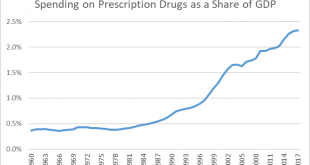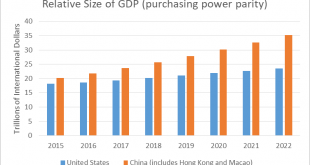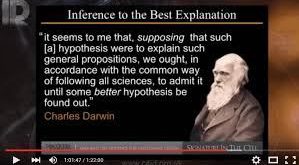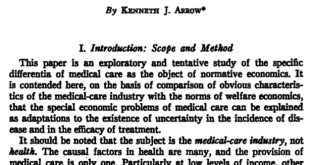from Dean Baker It is striking how the media universally accept the idea that patent and copyright monopolies are somehow free trade. We get that the people who own and control major news outlets like these forms of protection, but it is incredibly dishonest to claim that they are somehow free trade. We get this story yet again in a NYT piece complaining about China’s “theft” of intellectual property, while telling readers about how Trump’s proposed tariffs show his: “resolve to turn away...
Read More »“unemployment”: 6 definitions – USA 1950 – 2018
Method or Madness?
from Asad Zaman Because of the universal spread and impact of Western educational systems, necessary for survival in the modern world, we have all learned to view the world through glasses manufactured in Europe. Just as a fish is unaware of the waters in which it swims, so we are unaware of the currents of history which have shaped European thought. Yet to understand the world we live in, and how our perceptions have been shaped by the dominance of West, it is essential to acquire an...
Read More »Thatcher in retrospect
from Lars Syll Yours truly was interviewed last week for a radio program re the legacy and impact of Margaret Thatcher on society. The picture below conveys, in not so many words, my feelings and views on the subject … The rising inequality that has been going on in our societies since the Reagan-Thatcher era is outrageous. Income and wealth have increasingly been concentrated in the hands of a very small and privileged elite. And a society where we allow the inequality of incomes and...
Read More »Buyback this!
from David Ruccio I have been arguing, since 2016 (e.g., here, here, and here), that one of the likely outcomes of the kind of corporate tax cuts Donald Trump and his fellow Republicans have supported—and, as we saw, eventually rammed through—would be an increase in inequality. That’s because corporations would likely use a portion of their higher profits to engage in stock buybacks, leading to an increase in stock prices. And stock ownership in the United States is already grotesquely...
Read More »China as Number One: The relative size of the U.S. and Chinese economies
from Dean Baker Eswar Prasad makes the case in an NYT column that we should be paying attention to the selection of Yi Gang to head China’s central bank as a result of China’s status as the world’s second-largest economy. Prasad is right about the importance of China’s central bank in the world economy, but it is worth noting that by purchasing power parity (PPP) measures China is already by far the world’s largest economy. Purchasing power parity calculations of GDP attempt to measure...
Read More »Scientific realism and inference to the best explanation
from Lars Syll In a time when scientific relativism is expanding, it is important to keep up the claim for not reducing science to a pure discursive level. We have to maintain the Enlightenment tradition of thinking of reality as principally independent of our views of it and of the main task of science as studying the structure of this reality. Perhaps the most important contribution a researcher can make is to reveal what this reality that is the object of science actually looks like....
Read More »Utopia and healthcare—2
from David Ruccio The dystopia of the American healthcare system certainly invites a utopian response—a ruthless criticism as well as a vision of an alternative. As I showed last week, the left-wing response involves a critique of the conditions and consequences of the capitalist organization of U.S. healthcare and the fashioning of a radical alternative. Single-payer, which uses tax revenues to finance the purchase of adequate healthcare services for everyone, is one possibility. On top...
Read More »Syll’s top 20 books compared to RWER’s top 10 and its poll’s top 40 vote receivers
In May of 2016 the Real-World Economics Review conducted a poll titled “Top 10 Economics Books of the Last 100 Years” Voting was open to the journal’s 26,000 subscribers, and over 3,000 of them voted, each having up to ten votes and with 17,270 votes in total cast. The results were published two weeks later and linked on over 2,000 Facebook pages. It is interesting to compare those results to Lars Syll’s personal list of “Top 20 heterodox economics books” published here earlier today....
Read More »Top 20 heterodox economics books
from Lars Syll Karl Marx, Das Kapital (1867) Thorstein Veblen, The Theory of the Leisure Class (1899) Joseph Schumpeter, The Theory of Economic Development (1911) Nikolai Kondratiev, The Major Economic Cycles (1925) Gunnar Myrdal, The Political Element in the Development of Economic Theory (1930) John Maynard Keynes, The General Theory (1936) Karl Polanyi, The Great Transformation (1944) Paul Sweezy, Theory of Capitalist Development (1956) Joan Robinson, Accumulation of Capital (1956)...
Read More » Real-World Economics Review
Real-World Economics Review







